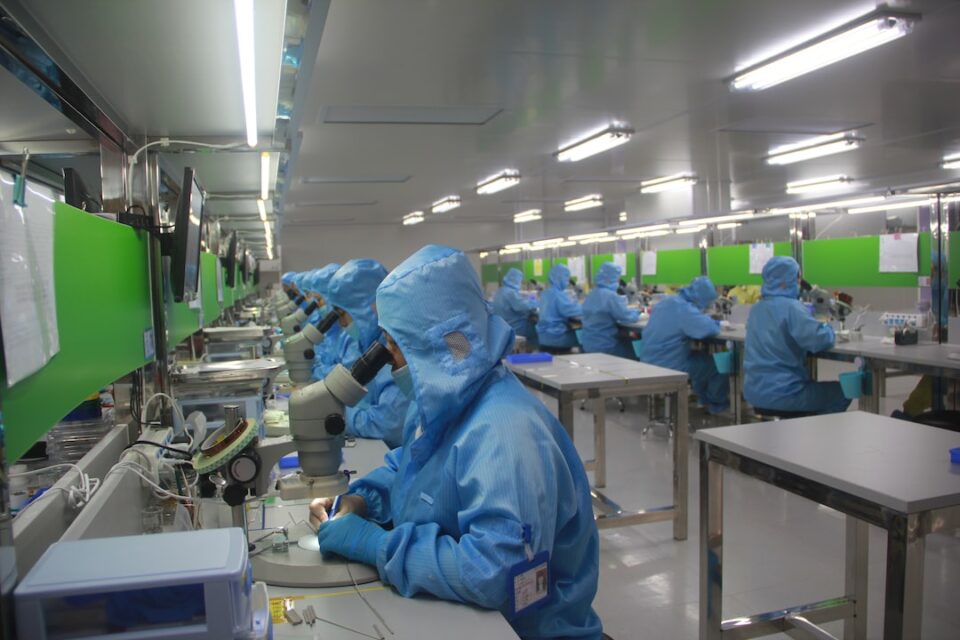The Benefits of Implementing Just-in-Time Manufacturing
In the dynamic world of manufacturing, businesses are continuously seeking ways to increase efficiency, reduce waste, and improve overall productivity. One method that has gained popularity in recent years is the implementation of Just-in-Time (JIT) manufacturing. JIT is a production strategy that focuses on delivering products or components to the assembly line at the exact time they are needed. This lean manufacturing approach has numerous benefits that can positively impact a company’s bottom line. In this article, we will explore some of these benefits in detail.
One of the primary advantages of implementing JIT manufacturing is reduced inventory costs. Traditional manufacturing methods often lead to excess inventory, which ties up capital and occupies valuable space. Implementing JIT ensures that inventory levels are optimized, with components arriving just in time for production. By reducing the amount of inventory on hand, companies can significantly reduce carrying costs, including storage, insurance, and the risk of obsolescence. This not only improves the company’s financial position but also enhances its competitiveness in the market.
Another significant benefit of JIT manufacturing is improved quality control. With JIT, products are manufactured in smaller batches, allowing for more frequent inspections and checks throughout the production process. This enables companies to identify and rectify defects or quality issues early on, before they become widespread. By implementing rigorous quality control measures, businesses can reduce the risk of defective products reaching customers, thereby enhancing their reputation and customer satisfaction levels.
JIT manufacturing also promotes better communication and collaboration between suppliers and manufacturers. Companies adopting JIT principles are more likely to develop long-term relationships with their suppliers, as they rely on their timely and consistent delivery of materials. This collaboration leads to enhanced trust, improved communication, and a shared commitment to quality and efficiency. Moreover, the reduced lead time associated with JIT manufacturing allows for better responsiveness to changes in customer demands, resulting in increased customer satisfaction and loyalty.
Implementing JIT manufacturing also drives continuous improvement within an organization. By streamlining processes, reducing waste, and eliminating unnecessary steps or activities, JIT encourages companies to continuously evaluate and improve their operations. The emphasis on continuous improvement ensures that the business is always looking for ways to enhance efficiency, reduce costs, and eliminate bottlenecks. This can lead to increased productivity, decreased cycle times, and higher overall profitability.
Furthermore, JIT manufacturing helps companies adapt to market fluctuations more effectively. The ability to quickly respond to changes in customer demand is crucial in today’s competitive manufacturing landscape. Having excess inventory due to inaccurate forecasting can be costly and lead to missed opportunities. JIT allows companies to adjust production levels based on real-time demand, ensuring a more efficient use of resources and a reduced time-to-market for new products. This flexibility and agility are paramount for businesses striving to stay ahead in a rapidly changing marketplace.
Lastly, the implementation of JIT manufacturing promotes a leaner and more sustainable approach to production. By eliminating waste, both in terms of excess inventory and inefficient processes, companies reduce their environmental footprint. This not only aligns with the increasing global focus on sustainability but also presents opportunities for cost savings in energy, raw materials, and waste management.
In conclusion, implementing JIT manufacturing offers numerous benefits for businesses in various industries. From reducing inventory costs and improving quality control to fostering collaboration and driving continuous improvement, JIT can significantly enhance a company’s competitiveness and profitability. Furthermore, its ability to adapt to market fluctuations and promote sustainability makes it an attractive option for companies committed to remaining agile and responsible corporate citizens. As manufacturing continues to evolve, JIT manufacturing stands out as a valuable strategy that can propel businesses towards success in an increasingly competitive marketplace.

